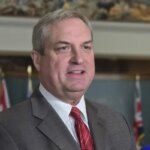In the shadow of Nova Scotia’s healthcare staffing crisis lurks another growing challenge: the simple act of finding a place to park. Healthcare workers across the province have increasingly voiced frustration over spending precious minutes—sometimes extending to half an hour—circling hospital parking lots before beginning their shifts, creating a ripple effect of stress throughout the healthcare system.
The Nova Scotia Health Authority announced yesterday a temporary solution that will offer free parking for healthcare staff at Halifax Infirmary and Victoria General Hospital—the province’s busiest medical facilities—starting next week. This initiative arrives after months of mounting complaints from nurses, physicians, and support staff who described the parking situation as “untenable” and “demoralizing.”
“I’ve had colleagues who arrived 30 minutes early but still started their shifts late because they couldn’t find parking,” said Emma Donovan, a registered nurse at Halifax Infirmary. “It’s not just an inconvenience—it directly impacts patient care when staff are stressed before they even begin work.”
The parking crunch has intensified following post-pandemic increases in patient volumes and construction projects that eliminated hundreds of spots at multiple facilities. At Victoria General, approximately 200 parking spaces were lost to ongoing expansion work, while Halifax Infirmary has seen nearly 150 spots disappear amid renovations.
Internal surveys obtained through freedom of information requests reveal that 68% of healthcare workers identified parking as a “significant source of workplace stress,” ranking it among their top three daily challenges alongside staffing shortages and administrative burdens.
Health Minister Michelle Thompson acknowledged the severity of the issue during a press conference at Province House. “We recognize that asking our healthcare heroes to drive in circles before lifesaving shifts is counterproductive to our recruitment and retention efforts,” Thompson stated. “This temporary measure will provide immediate relief while we implement permanent solutions.”
The free parking initiative will cost approximately $2.1 million annually, according to provincial estimates, but officials frame this expenditure as an investment in workforce stability. Critics question why the issue reached crisis proportions before action was taken, pointing to years of documented complaints.
“This is a problem that’s been building for a decade,” said Dr. James Morrow, president of Doctors Nova Scotia. “Healthcare workers shouldn’t have to choose between arriving impossibly early or risking being late for their shifts.”
The Nova Scotia Government and General Employees Union, representing thousands of healthcare workers, cautiously welcomed the announcement while emphasizing the need for permanent infrastructure improvements. “Free parking addresses one aspect of the problem, but we need more actual parking spots,” said union president Sandra Mullen.
Beyond the immediate relief measures, the province has committed to creating 500 additional staff parking spaces across multiple hospital sites by 2025, with construction beginning this fall. The comprehensive parking strategy also includes expanded shuttle services from satellite lots and improved public transit options for hospital staff.
For patients and visitors, who have similarly struggled with hospital parking limitations, the province promises a separate strategy to be announced next month. Healthcare advocates have long argued that difficult parking conditions create additional barriers for vulnerable patients already navigating complex health challenges.
As Nova Scotia continues addressing its healthcare system challenges, from surgical backlogs to physician shortages covered extensively in our Canada News section, this parking initiative represents acknowledgment of how seemingly peripheral issues can significantly impact healthcare delivery. The question remains: will addressing these practical, everyday challenges prove as effective for retention as salary increases and recruitment bonuses in stabilizing Nova Scotia’s healthcare workforce?
























